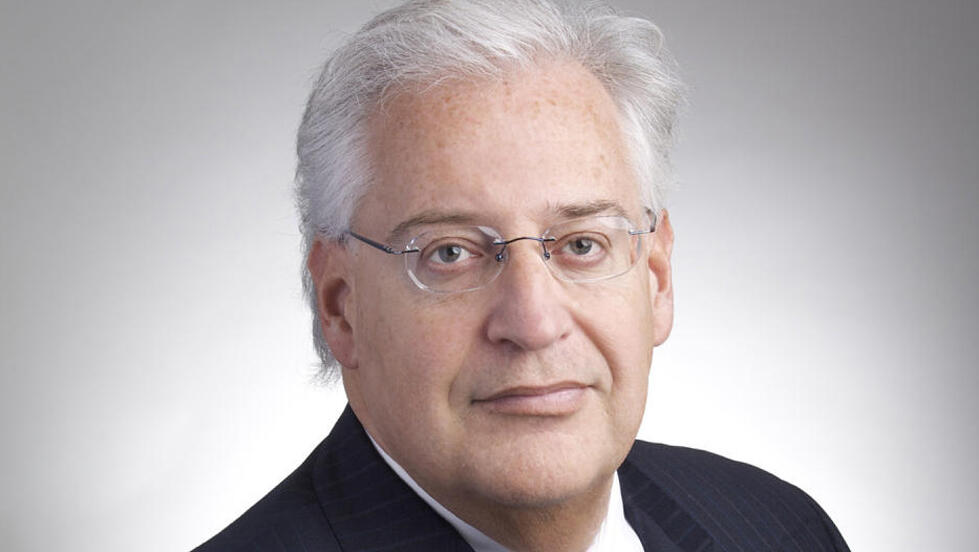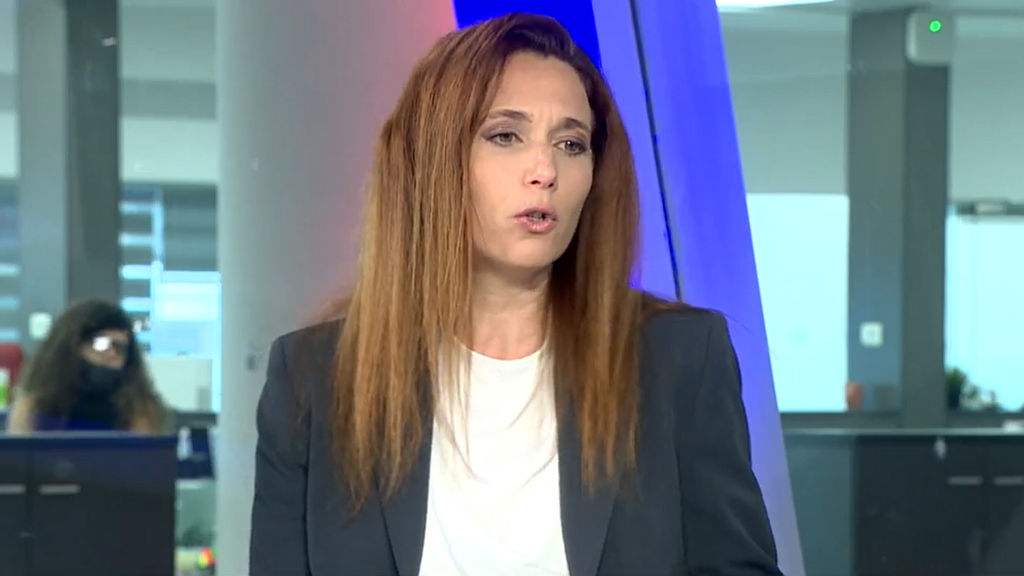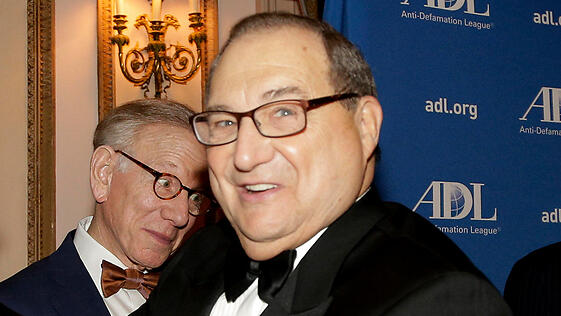Getting your Trinity Audio player ready...
The list of Jewish leaders refusing to attend next week’s conference hosted by Amichai Chikli’s Diaspora Affairs and Combating Antisemitism Ministry is growing. The latest to opt out is Anti-Defamation League (ADL) CEO Jonathan Greenblatt, whose organization monitors and reports on antisemitism.
At the center of the controversy is a group of far-right European politicians scheduled to speak at the event, set for March 26–27 in Jerusalem. Critics argue that offering these figures a platform lends legitimacy to populist parties with troubling histories of racism and antisemitism.
“Some of the people from the United Kingdom who have said they are not going are prominent people in this very field,” said Jennifer Frazer, a senior Jewish journalist in the UK.
“And the organizers ought to be concerned that these people, who are extremely prominent and pivotal in their fields, do not want to attend because it gives credibility to far-right people. Some of the people Chikli invited raised a red flag. And people should be wondering: If heavy hitters don’t come, maybe we should relook at the attendance.”
“This is a conference dealing with antisemitism,” added Abe Foxman, former head of the ADL. “When you invite some people who represent parties that still have vestiges of antisemitism on their agenda, then you have a problem.”
Foxman said he never officially withdrew and hadn’t confirmed his attendance, but he clearly disagreed with the lineup.
“I don’t think it is appropriate to have representatives of far-right parties in Europe coming to Jerusalem to meet with the Jewish community and together develop a strategy to fight antisemitism when they are part and parcel of the problem of antisemitism,” Foxman said.
Despite the backlash, several high-profile Jewish figures still plan to participate, including Israeli President Isaac Herzog, former U.S. Ambassador to Israel David Friedman, antisemitism expert Natan Sharansky, author and activist Ayaan Hirsi Ali, Conference of Presidents CEO William Daroff, and Yemeni journalist Luai Ahmed.
For some, the inclusion of controversial figures is a feature—not a flaw. “The Jewish organizational world has been wasting billions of dollars in donations to fight antisemitism that has absolutely failed,” said Avi Abelow, CEO of 12Tribe Films Foundation. “After October 7, the outpouring of antisemitism in celebration of our being massacred is the biggest signal of the absolute failure of the whole Jewish establishment over decades in fighting antisemitism.”
Abelow believes the leaders skipping the conference are simply trying to be “politically correct” and said Chikli is “the first Jewish leader to deal with the truth about the growth of antisemitism today,” which he claims stems from Muslim extremism.
“So long as the Jewish organizational world continues to ignore that, they’re damning the Jewish people to continue to deal with the growing antisemitism without understanding,” Abelow said.
He praised Chikli’s willingness to “go out on a limb” and include far-right politicians despite the backlash—as well as the politicians themselves for “standing up for the Jews.”
“The liberal Democrat politicians of the West have failed us miserably because they don’t call out the danger that exists within Islam,” he added. “Some of these parties are our allies in countering the rise of Muslim fundamentalism and antisemitism.”
Get the Ynetnews app on your smartphone: Google Play: https://bit.ly/4eJ37pE | Apple App Store: https://bit.ly/3ZL7iNv
Not ‘loving Mordechai’ but ‘hating Haman'
Many argue, though, that this alliance comes at too high a price. “I think 13 years ago, there was a turning point,” said Raheli Baratz Rix, head of the Department for Combating Antisemitism and Enhancing Resilience at the World Zionist Organization. She cited a wave of Islamist terrorist attacks in Europe — from Toulouse and Charlie Hebdo to Paris, Brussels, Berlin, Nice and Manchester—as the catalyst for a surge in far-right sentiment.
“In recent years, we have witnessed a disturbing phenomenon—the significant strengthening of these parties across the continent,” Baratz Rix wrote in a recent op-ed. “Many Israel supporters welcome this development, seeing the public declarations of these party leaders in support of the Jewish state. But is this really positive news? Is this genuine love for Israel, or are there other motives hiding behind this support?”
According to Baratz Rix, the answer is disturbing. The support for Israel, she said, is often rooted not in admiration for the Jewish state but in deep-seated hostility toward Muslims.
“This is not ‘loving Mordechai’ but ‘hating Haman,’” she said. She emphasized that while Israel and the European far-right may share a common enemy in radical Islam, the far-right’s rhetoric often targets Muslims broadly—viewing them as a demographic and cultural threat.
She also warned that far-right leaders from parties such as France’s National Rally, Italy’s Lega, and Germany’s Alternative for Germany have roots in antisemitic ideologies. Studies of their voters, she said, show continued support for neo-Nazism, Holocaust denial, and classic antisemitic tropes.
Uri Gobey, who runs Documenting Israel, agreed that Jewish communities should be wary of the European far-right—but not more so than of anyone else. “We should be suspicious of all political movements,” he said. “But now is the perfect opportunity—when these groups do not hate the Jews—to befriend them and change the narrative.”
“We should be taking advantage of that situation, totally leveraging the situation, to align with these kinds of people,” Gobey added. “It is not that we should be their best friends … but to literally just take advantage of the situation that they’re against our common enemy.” But for critics like Foxman and Baratz Rix, the issue runs deeper than strategy — it’s moral.
“The neo-fascist right is trying to use this issue to legitimize themselves that they are OK,” Foxman warned. “They are not OK. Some are neo-fascists, and some are neo-Nazis. They are trying to present a legitimate face, and they hope that coming to Israel and Jerusalem and attending a conference with Jewish leaders on how to fight antisemitism will legitimize them. “I think we should be smarter and understand that and not be used for this purpose.”
“Israel has much to lose from this alliance,” Baratz Rix wrote. “It endangers relationships with the political mainstream in Europe. It puts local Jewish communities at risk, who may be perceived as supporting the populist agenda. It ignores the fact that racism against one group can easily turn into racism against Jews—as history teaches us time and again.”
She concluded: “While Israel needs allies on the international stage, it must choose its partners wisely. An alliance based on shared hatred is a shaky and dangerous foundation for international relations.” Abelow strongly disagrees, saying it’s this “politically correct” mindset that has failed the Jewish people.
“All the money continues to be donated to all the Jewish organizations and legacy organizations that for decades have been trying to fight antisemitism and proven to be absolute failures,” Abelow said. “People should consider where they should be donating the money to assist the Jewish community deal with the growing antisemitism today.”
He said the new alliances Chikli is forging deserve a chance. “I think that it is important to have a conference which will talk about how best to talk about antisemitism,” Frazer concluded.
“But if such a conference is not going to include the people who are acknowledged experts on the matters, then, perhaps, it is time to reconsider how this conference is being convened. Antisemitism is too big a subject to leave it to people who don’t know what they are talking about.”
- The story is written by Maayan Hoffman and reprinted with permission from The Media Line.





